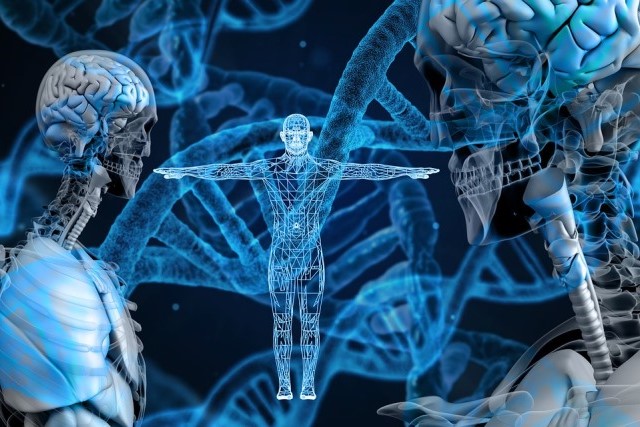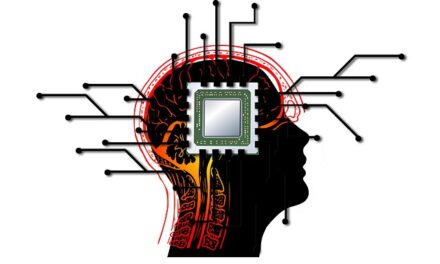In his book Hacking Darwin, futurist and author Jamie Metzl explores the coming genetic revolution, predictable outcomes, and unintended consequences of messing with complex systems.
With accelerating advances in technology, the dawn of a new age of superhumans is nearly upon us. Humanity will begin steering its own evolution for the first time in history. In the not-so-distant future gene technology will give us unprecedented power to design our future offspring. We will be able to reduce the chance of a child developing disease later in life, and will even be able to choose traits that will influence their height, IQ, and personality type. This scenario may sound like science fiction, but thanks to a “perfect storm” of technological advances, it is becoming a reality. A genetic revolution is upon us.
Jamie Metzl – technology futurist, Senior Fellow of the Atlantic Council, entrepreneur, media commentator, and author of science fiction novels Genesis Code and Eternal Sonata and the non-fiction Hacking Darwin: Genetic Engineering and the Future of Humanity.
Perfect Storm Of Converging Technologies
According to Metzl: “Right now we’re at this moment of super-convergence. It’s not any one technology that’s determinative, it’s all these technologies happening at the same time, because they’re all influencing each other.” Below is a brief outline of these nex-gen technologies that are key to advancements in genetic engineering.
Cheap Sequencing Of The Human Genome
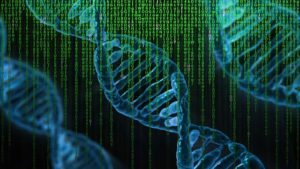 Whole genome sequencing is the process of determining the complete DNA sequence of an organism’s genome at a single time. Sequencing of the human genome requires a ton of genetic information. And while the cost of full genome sequencing is currently the limiting factor, it’s dropping considerably (from around US$2.7 billion in 2003, to less than US$600 today according to the author). That’s going to have to come down by another order or two of magnitude, but its on a trajectory to do so.
Whole genome sequencing is the process of determining the complete DNA sequence of an organism’s genome at a single time. Sequencing of the human genome requires a ton of genetic information. And while the cost of full genome sequencing is currently the limiting factor, it’s dropping considerably (from around US$2.7 billion in 2003, to less than US$600 today according to the author). That’s going to have to come down by another order or two of magnitude, but its on a trajectory to do so.
Profusion Of Dynamic Data (Thanks To 5G Connectivity And The Internet of Things)
Heaps of dynamic data will become available in the coming years thanks to wearable devices and instruments connected to the internet of things. This development will teach us enormous amounts of information about people’s health and what’s going on in their bodies. Eventually, this will enable population-wide phenotypical research to be cross-checked against the genome to learn even more about how genes express themselves, individually and in concert with one another.
Evolution Of Big Data And Analytics Tools
Storage and analysis of Big Data are keys to genetic engineering. And thanks to rapid advancements in each, a remarkable coalescence of technological advancements is making genetic analysis progressively quicker and less expensive.
- The 2.9 billion haploid pairs making up each sequenced human genome represent about 725 megabytes of data. Dynamic health records will require more and more storage space, in formats that can easily be cross-checked against each other at a massive scale.
- Thanks to artificial intelligence (and more specifically to deep learning), we will soon be able to meaningfully process this enormous amount of data. And when it’s ready for serious commercial use, the speed and power of quantum computing will prove invaluable in quickly processing these enormous amounts of data.
Advanced IVF (In Vitro Fertilization) Technologies
Vastly improved IVF technologies that will soon enable us to generate egg and sperm cells from skin cells without needing invasive or embarrassing procedures to be carried out. Eventually, we’ll have the capability to cheaply produce dozens, or even hundreds of embryos to sequence, select and implant.
Better Gene Editing Tools
While current gene editing tools like CRISPR-Cas9 are imprecise in nature, more accurate and precise tools are constantly being discovered and refined to edit the genome of living subjects.
Once you have a basic understanding of the technologies behind genetic engineering, its important to envision what a profound impact – the power to disrupt millions of years of evolution – gene editing will have on humanity. Jamie Metzl lays out a roadmap of how the genetic revolution will most likely play out. He also delivers a grave warning of undesirable and unintended consequences if we fail to address questions of ethics and societal norms surrounding genetic engineering.
Genetic Revolution – Predictable Outcomes
More Personal And Precise Health Care
Genetics is going to transform the entire paradigm of health care. Currently when we go to the doctor, we are treated based on the principles of generalized medicine. But going forward, your treatment is going to be based on your specific biology. In the future, when you take a drug, its not going to be a drug that works “on average” for all humans. Rather, its going to be a drug that works specifically for you – based on your own unique biology. The foundation of that biology will be your sequenced genome which will be part of your electronic health record.
And as more and more people have their genome sequenced in this transition from generalized to precision health care, we will begin to decipher more and more of the secrets of the genome. This will take personalized health care yet another step further – from precision medicine to predictive medicine. Instead of going to the doctor when you get sick, we will be able read a person’s genome and reasonably foresee disease years before the person is afflicted.
Advanced Embryo Selection
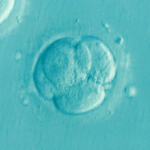 Next, genetics will move well beyond the realm of health care. As science learns more about what individual genes (and combinations of genes) do to the final outcome of a human, prospective parents will be able to choose their offspring based on preferable traits. With dozens, or potentially hundreds of their own biological embryos to choose from, parents will be able to select their child based on height, athleticism (speed, dexterity, etc.), intelligence, skin color, eye color, personality,… All these embryos (possible kids) are yours, so why not choose the one that appears to have the best odds of success in life? Not doing so, says Metzl, could grow to be seen as a “crime against potential’.
Next, genetics will move well beyond the realm of health care. As science learns more about what individual genes (and combinations of genes) do to the final outcome of a human, prospective parents will be able to choose their offspring based on preferable traits. With dozens, or potentially hundreds of their own biological embryos to choose from, parents will be able to select their child based on height, athleticism (speed, dexterity, etc.), intelligence, skin color, eye color, personality,… All these embryos (possible kids) are yours, so why not choose the one that appears to have the best odds of success in life? Not doing so, says Metzl, could grow to be seen as a “crime against potential’.
And future parents won’t be the only ones favoring embryo selection. Governments and insurance companies will promote IVF and embryo selection to eliminate the expenses of preventable genetic disease. Once an IVF procedure becomes cheaper than treating serious future disease, healthcare providers will be incentivized to cover such a procedure.
Genetic Coding Race Due To Competition Among Nations
Just like the perpetual arms race among nations, the genetic revolution will drive a new, and potentially higher-stakes competition between nations. Whether its in sports or business or any other area of life, every country wants to have the best people. With the power to genetically alter each person before they are born, nations are beginning to recognize that they can screen people based upon genetic sequencing.
Global power will drive the genetic coding race. Countries that choose not to participate in some form of genetic engineering will risk falling behind. The countries who opt-in could have people who are smarter, taller, and even more resilient to climate changes. Some nations might even use this technology to build an enhanced military.
Genetic Revolution – Undesirable Outcomes
In a May 2019 interview, Joe Rogan asks “what makes you nervous about this?” (referring to the future of genetic engineering). Jamie Metzl addresses “three big areas”, though his concerns don’t end there.

Messing With Complex Systems Typically Leads To Unintended Consequences
Human beings are incredibly complex. Not only is our genetic code extremely complex, but our genetics exist within an incredibly complex systems biology. We have a multitude of systems working together. Our microbiome, our virome, our proteome, our metabolome. And these complex systems exist within the context of our environment, adding yet another layer of complexity. Everything is continuously interacting and changing. There are nuances that we have no way of understanding. So now that we have the tools to mess with these complex systems, we risk profound, unintended consequences. For we are a hubristic species. We just can’t resist messing with nature, in spite of the risks.
Issue of Equity – Genetic Enhancement Resulting In New Class Hierarchies
The genetic revolution raises the ethical question of equity. Will genetic enhancements result in new class hierarchies?
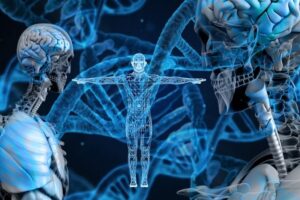 Since every technology has first adopters, we risk having one group of people moving much more quickly than the rest of the population. It’s not difficult to imagine this group of genetically enhanced early adopters gaining advantages in terms of intelligence, earnings potential and survivability. This has the risk of creating new class hierarchies and dangerous social inequality. In a nightmare scenario, there’s even the potential for a class of superhumans that rule over a class of genetically inferior servants.
Since every technology has first adopters, we risk having one group of people moving much more quickly than the rest of the population. It’s not difficult to imagine this group of genetically enhanced early adopters gaining advantages in terms of intelligence, earnings potential and survivability. This has the risk of creating new class hierarchies and dangerous social inequality. In a nightmare scenario, there’s even the potential for a class of superhumans that rule over a class of genetically inferior servants.
Loss Of Genetic Diversity
The universal adoption of embryo selection gives rise to the profound risk of decreased genetic diversity. Once parents and society start to choose certain “advantageous” traits over less popular traits, we start to move in the direction of a homogeneous monoculture. And diversity, up to this point, has been key to our survival.
We need a non-uniformity when it comes to our own biology. We need a bunch of different kinds of people because, even if we are optimized for the world today, the world will change in ways we’ll never be able to predict. So there’s no good and bad in evolution, there’s just well-suited for a particular environment. And when (not if) that environment changes, the best suited person for the old environment may be the least suited person for the new.
“We may make choices based on something we think is really good, like eliminating a terrible disease,” says Metzl, “but then that genetic pattern that enabled that disease, in some other formulation, could be protective against some threat we can’t even imagine, that’s coming our way a thousand years from now. That’s why we need to be so respectful of our diversity. If we didn’t have diversity, you could say we’d still be single-celled organisms. We wouldn’t, we’d probably just have died. When the world changes around us, diversity is what helps us survive.”
GMOs Threaten Biodiversity
Genetically modified plants, animals, and organisms, when introduced into the environment, have the potential to adversely affect biodiversity. History has taught us that the introduction of non-native species into an ecosystem, often comes with all kinds of unintended consequences. Its foolish – hubris – to believe we can avoid the same disastrous outcomes when introducing (on purpose or by accident), genetically altered organisms to natural environments.
Genetically Engineered Weapons
Genome sequencing has given rise to a new – terrifying – era of genetically engineered weapons. Although bioweapons have been used in war for centuries, genetic engineering can now be used to create ultra-lethal pathogens with enhanced efficacy through increased survivability, infectivity, virulence, and drug resistance. And scarier yet, the growing accessibility of DNA synthesis capabilities and computational power, means that more and more states (and even sub-national terrorist groups), will have the capability to produce such weapons. In certain respects, a contagious, genetically engineered weapon may be more deadly than the hydrogen bomb due to its capacity to spread uncontrollably throughout a population.
Conclusion
Whether we like it or not, the future of humanity will be shaped by genetic engineering. And though we have no choice but to embrace these technologies, considering both good and bad outcomes is necessary to mitigate a worst-case scenario.
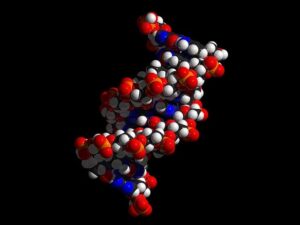 Metzl wants people around the world to be informed about the technologies and probable outcomes, so meaningful efforts can be made to steer policy in a direction that everyone can agree on. Its imperative that we set up clear lines in the sand, past which we agree not to venture. Each country, Metzl says, needs to set up a national regulatory infrastructure to control the pace of these changes, and there also needs to be an international body (with some teeth), to make sure certain nations don’t leap ahead and change the nature of humanity due to lax regulations.
Metzl wants people around the world to be informed about the technologies and probable outcomes, so meaningful efforts can be made to steer policy in a direction that everyone can agree on. Its imperative that we set up clear lines in the sand, past which we agree not to venture. Each country, Metzl says, needs to set up a national regulatory infrastructure to control the pace of these changes, and there also needs to be an international body (with some teeth), to make sure certain nations don’t leap ahead and change the nature of humanity due to lax regulations.
Until then, we don’t need to wait for national or international agents to take action. It will be up to each of us to educate ourselves, our peers and our communities about the benefits and risks of genetic engineering. And since the science and societal norms are ever changing, continual education will be key to profiting from new developments and preventing undesirable outcomes.
How do you profit from the genetic revolution that is already under way?
First and foremost is understanding. Whether you are looking for a career in genetics, or would like to invest in the industry’s tremendous upside potential, its imperative that you educate yourself and broaden your knowledge in the area.
Learn More About Genetics And Genetic Engineering
Below are a number of free and paid online courses in genetics and genetic engineering.
- Khan Academy – molecular genetics
- Udemy – genetic engineering
- Coursera – genetic engineering
- edX.org – genetic engineering courses
- Class Central – Genetic Engineering: Theory and Application
- Stanford Online – Genetic Engineering and Biotechnology
Once you’ve expanded your knowledge in genetic engineering, you’ll be more adept at finding quality investment opportunities.
Top Gene-Editing Stocks For Investors
Below we’ve listed 6 of our favorite companies in the area of genome editing that you may wish to investigate further.

